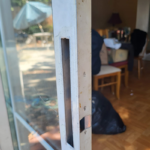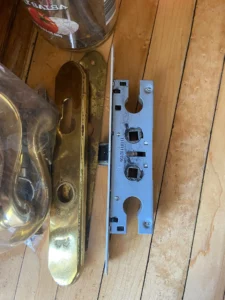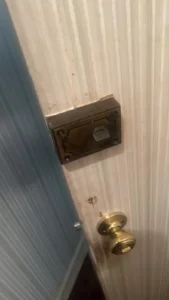Electronic Locks vs Traditional Locks: Unlocking The Pros and Cons Of These Lock Systems
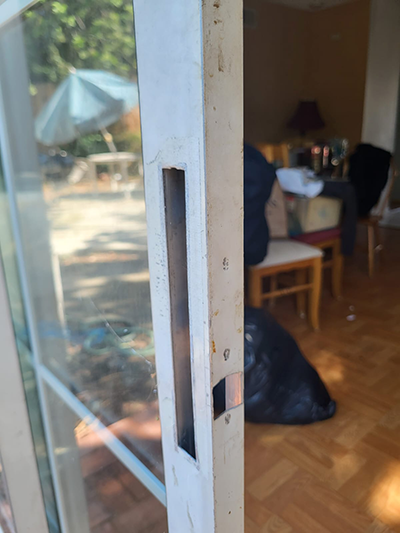
This article will unlock the pros and cons of each locking system, dive deeper into their functionalities, and assess the ease with which locksmiths can work with, repair, or install these systems. For the best in locksmith repair and installation of both traditional door locks and smart door locks, contact the team of professional locksmiths at Real Time Locksmith of San Jose, California.
Key Differences Between Smart locks and Traditional locks
While both types of locks offer security for your home, office, or commercial building, there are some differences between the locking systems. Let’s take a closer look at the pros and cons of each system.
How Traditional Locks Work
Traditional locks, often referred to as mechanical locks, operate through physical mechanisms without the need for electronic components. The most common types of locks are rim locks, mortise locks, and pin-tumbler locks, where a series of spring-loaded pins must align at specific shear points to allow the lock to open. These standard locks typically use a physical key, and their simplicity contributes to their widespread use and familiarity.
Pros of a Traditional Lock System:
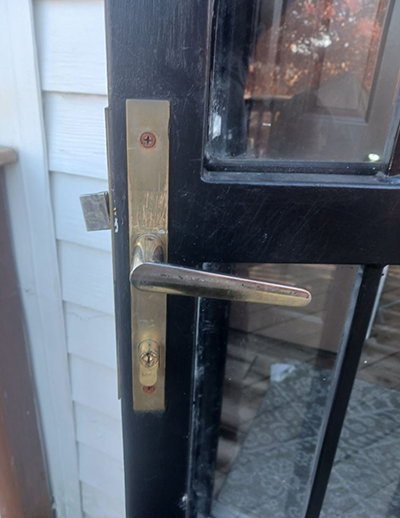
Proven Reliability: With a history spanning centuries, traditional locks have stood the test of time and proven reliable in providing basic security.
No Power Dependency: Traditional locks don’t rely on electricity or batteries, making them operational even during power outages.
Cons of a Traditional Lock System
Vulnerability to Picking: Lower-quality traditional locks lack enhanced security against lock picking. Picking is a technique where specialized tools are used to manipulate the internal mechanisms and unlock the door.
Key Management Challenges: If the physical key is lost or stolen, rekeying or replacing the traditional lock may be necessary to maintain security, which can be cumbersome and create unnecessary costs.
Limited Remote Access: Traditional locks do not offer the convenience of remote access, making them less suitable for modern smart home integration.
How Electronic Locks Work
An electronic lock, or smart lock, uses electronic components such as keypads, biometric authentication scanners, a key fob, voice control, access codes, or proximity cards to grant access. A smart lock can often connect to a central control system and can be operated remotely using smart devices. The smart home devices, including keypad entry, RFID (Radio-Frequency Identification), and Bluetooth connectivity, can vary.
Pros of a Smart Locking System
Enhanced Security Features: Smart home systems generally have advanced security features such as biometric recognition. This makes smart locks more secure for the front door of your home or commercial property.
Convenient Remote Access: Most smart locks provide the convenience of remote access. This feature makes it possible for you to remotely lock or unlock your door from wherever you are. As long as your smart lock is connected to your home’s wifi network connection, you are in control of it. As part of a smart lock’s anti-theft capabilities, it can even send you tamper alerts and revoke access to unwanted intruders.
Keyless Entry Options: A smart lock opens using biometric scanners, keypads, and other smart home devices. This means that smart locks don’t require physical keys, eliminating the risk of your keys being duplicated.
Cons of a Smart Lock System:
Power Dependency: Although it is a secure lock, a smart lock security system relies on power sources, such as batteries or electrical wiring. In case of power failure or dead batteries, alternative access methods or emergency power sources may be required for your smart locks to work.
Higher Initial Cost: Like other home security system installations, the advanced technology in security cameras, keyless systems, and smart locks often comes with a higher upfront cost than traditional locks, potentially limiting the accessibility of smart locks for some users.
Potential for Technical Glitches: Smart locks and other smart devices can be susceptible to technical malfunctions or hacking attempts, raising concerns about system reliability.
How Our Locksmith Team Work With Smart Locks and Traditional Locks
Traditional Door Locks
The locksmiths at Real Time Locksmith are fully trained in the art of traditional lock mechanisms. Our lock technicians find working with these locks relatively straightforward.
Repairing or rekeying a traditional lock usually involves:
- Disassembling the lock cylinder or system.
- Replacing pins or springs if necessary.
- Reconfiguring the lock to work with a new key.
The professional installation of traditional locks is a well-established skill within the locksmith profession and, when installed correctly, makes a secure option for any home or commercial property.
Smart Door Locks
Smart locks might seem technologically complex and intimidating at first. However, locksmiths are adapting to meet the demand for smart features as a modern security solution. Installing smart locks involves using both the existing hardware and software considerations.
Locksmiths may need additional training to handle these smart lock systems effectively. Repairing smart locks often requires troubleshooting digital components, which may be challenging for locksmiths not well-versed in modern technology.
Factors to Consider When Choosing The Right Type of Lock System
When contemplating the choice between a smart lock and a traditional lock for your doors, several crucial considerations should guide your decision, ensuring that the selected lock aligns seamlessly with your preferences and requirements.
Aesthetics
The first thing to consider is the aesthetic appeal of smart locks, which often boast sleek and modern designs. While this may complement contemporary home styles, ensuring that the chosen smart door lock blends harmoniously with your front door design and overall architectural aesthetic is essential. Some smart door locks offer customizable finishes to match various door types.
While traditional locks come in a variety of styles and finishes, allowing for greater flexibility in finding an option that complements your home’s aesthetic. Whether you have a classic or modern front door, these types of locks can be chosen to blend seamlessly with the existing architectural elements.
Compatibility
Another aspect worth considering is the compatibility of a smart door lock with your existing door. Different smart door locks may have specific requirements regarding door thickness, alignment, or other factors. Ensure that the smart door lock is suitable for your door type, whether solid wood, metal, or a composite material.
Traditional locks are generally versatile and can be adapted to fit various door types. Ensure that the chosen lock aligns with the standard specifications of your doors, and consider factors like backset and borehole size to guarantee a proper fit. You may also need to consider other locking systems, such as existing deadbolt locks or latch systems.
Affordability
The cost of smart locks can vary significantly, with more advanced features often associated with a higher price tag. Consider your budget and evaluate whether the added functionalities of an auto lock justify the additional expense, especially when compared to a more standard locking system.
Traditional locks are generally more affordable upfront, making them an attractive option for those seeking a cost-effective security solution. A standard lock system may offer a practical and reliable alternative if budget constraints are a significant factor.
Security Features
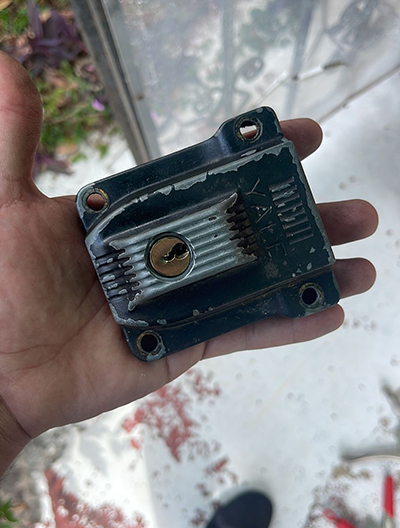
Unlike smart locks, standard locks use physical keys, or even a traditional deadbolt. It makes it a little time-consuming to unlock your door and it lacks the high-tech features of smart locks.
Although this way of locking a door requires being manually engaged, they have a proven track record of providing reliable security. Consider the level of security required for your property and whether the simplicity of a standard door lock meets your home security needs.
Integration with Smart Home Systems
If you have or plan to implement smart locks, security cameras, or intrusion alarms, take time to check whether your smart lock is compatible with existing devices. Many smart locks offer a seamless integration with popular smart platforms, allowing for a cohesive smart home security experience.
Traditional locking systems do not need to integrate with an automated version of a smart home ecosystem. If your home is not equipped with or planned for these types of automated versions, this may not be a significant concern.
Conclusion
Choosing between a smart lock and a traditional lock involves carefully evaluating aesthetic preferences, door compatibility, budget considerations, ease of installation, and desired security features.
Both options have their merits, and selecting the right lock for your doors requires a thoughtful balance between form and function. Consulting with the professional locksmith team at Real Time Locksmith can provide valuable insights and help you make an informed decision based on your specific needs and circumstances.

